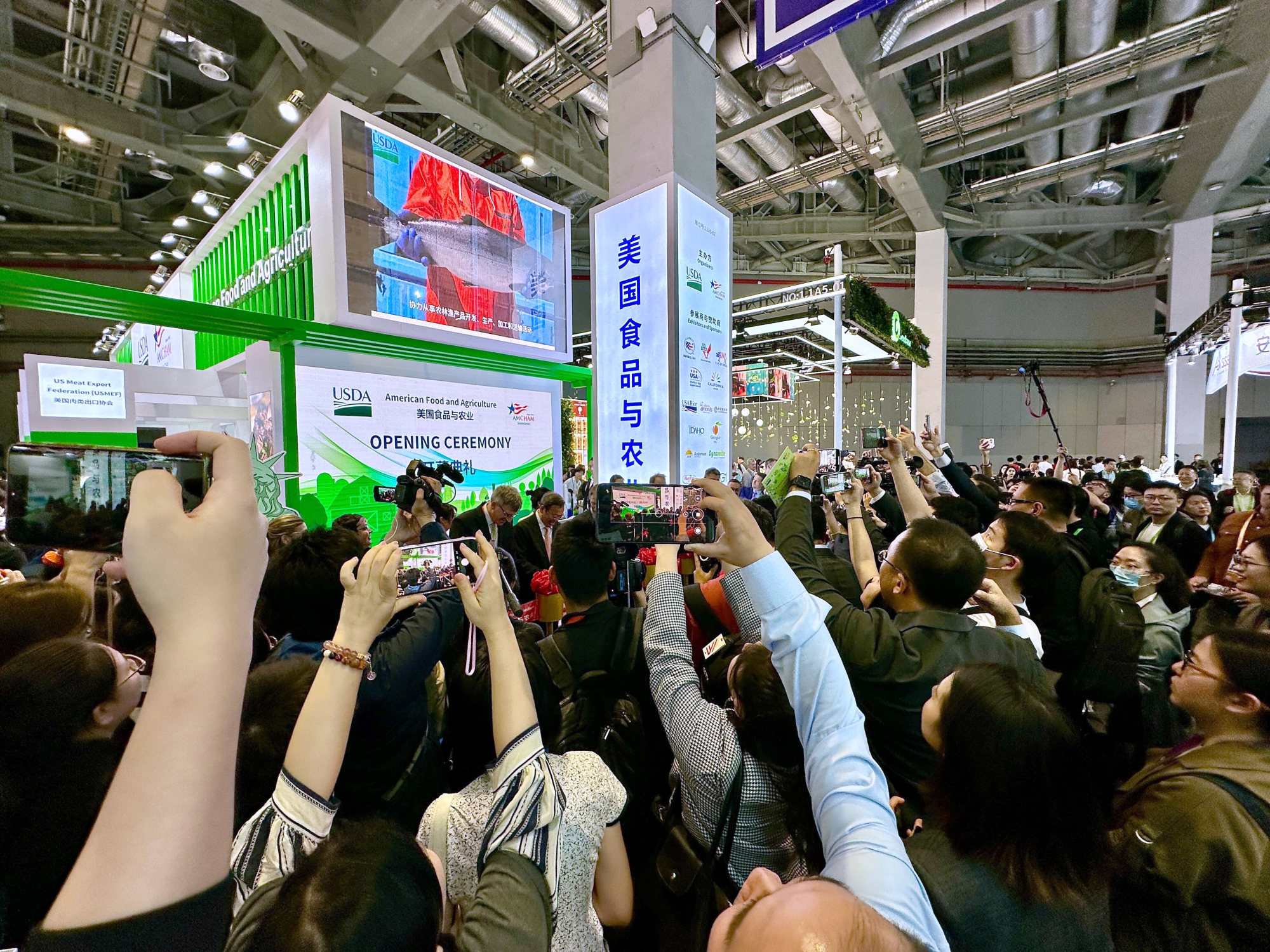Vice-Premier He Lifeng will visit the US later this week in yet another sign of improving bilateral relations that comes as senior US officials and business delegates are taking an optimistic outlook on cooperation at a key import exhibition in Shanghai.
He, who is tasked with overseeing economic and trade dialogues with the US, will begin his five-day visit to the US on Wednesday “at the invitation of US Treasury Secretary Janet Yellen”, the Ministry of Foreign Affairs said on Tuesday.
Will Xi-Biden meeting at Apec be the crest of a wave for US-China relations?
Will Xi-Biden meeting at Apec be the crest of a wave for US-China relations?
On Monday, the US Department of Agriculture (USDA) unveiled Washington’s first-ever official pavilion at the China International Import Expo in Shanghai, boasting 17 exhibitors.
“The US can tap opportunities to export technologies to help China become more self-sufficient in food production,” said Jason Hafemeister, acting deputy undersecretary for trade and foreign agricultural affairs and trade counsel to the agriculture secretary at the USDA. “Yet, factors hampering more trade in agriculture need both sides to continue communication.”
The USDA expects China to be the leading destination for agricultural exports for a third straight year in 2023, on top of the record US$36.4 billion in trade during the 2022 financial year.
“We see China has a resilient interest in US agriculture despite political ups and downs,” said Jim Sutter, CEO of US Soybean Export Council.
US to send strongest-ever delegation to China import expo amid improving ties
US to send strongest-ever delegation to China import expo amid improving ties
Sutter shrugged off suggestions that bilateral rifts and China’s import diversification drive have dented the popularity and competitiveness of US products.
“Our biggest hurdle has nothing to do with diplomacy or politics, the biggest challenge we have this year is weather. We cannot produce enough soybeans to quench China’s demand,” he added.
“Chinese people want more, better food like protein,” Sutter said. “As their living standards keep improving, we see a brighter future for US agricultural products in this massive market.”
The cultivation of resilient agricultural trade between China and the US is seen as both a ballast to stabilise the relationship and also a seedbed for more business.

“We are here to talk about business, especially when this year’s trade mission is supported by the federal government for the very first time, but that doesn’t mean we have to see eye to eye on all issues,” Sutter said.
“We feel we are welcome, but we are here to also help China make good on its promises – like to make trade fairer and to import more from the US.”
China accounted for more than half of the US’ soybean exports and about 25 per cent of its corn shipments, according to the latest available data as of the end of 2021.
It is also among the leading buyers of wheat, cotton, pork, poultry, dairy products and tree nuts.
We look forward to exploring areas where we may cooperate and learn from each other
China’s increasing appetite for US beef and beef products has seen its share in exports rise from a negligible level before 2020 to 15 per cent at the end of 2021.
Regional representatives at the expo also expressed a strong interest to insulate agricultural trade from any political tensions between Beijing and Washington.
“We work at the local level every day to improve people’s lives. We look forward to exploring areas where we may cooperate and learn from each other,” said Jim Brainard, mayor of Carmel in the Midwestern state of Indiana.
Kim Norton, mayor of Rochester in Minnesota, welcomed the substantive discussions with his Chinese counterparts.
Attending China’s largest import-themed trade fair signals the goodwill to explore potential
“We have common goals of food security and economic development. And we have a great deal to learn from each other despite disputes at state levels,” Norton said.
The strong US delegation follows a string of recent visits by US federal and state politicians.
“The US attending China’s largest import-themed trade fair signals the goodwill to explore potential and proves it has no intentions to decouple from China economically, although Washington will continue to pursue long-standing issues,” US ambassador Nicholas Burns said at the booth.
The sixth edition of the CIIE began on Sunday, with more than 2,000 exhibitors from 100 countries and regions expected to attend over the six days.

